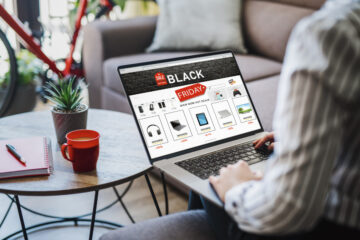Tycoon’s social media empire faces many challenges including fierce competition from TikTok.
Mark Zuckerberg’s plate is full.
His Meta Platforms (META) – Get Meta Platforms Inc. Report empire, which includes the social networks and messaging apps Facebook, Instagram, Messenger and WhatsApp, faces a mountain of challenges.
The first of these obstacles is, obviously, the macroeconomic environment. Many economists say it’ll be difficult to avoid a recession fueled by 40-year high inflation and a hike in Federal Reserve rates.
Households and businesses would thus reduce spending and businesses would delay major investments. This is not good for Meta Platforms since the bulk of its revenue is generated from advertising.
“If I had to bet, I’d say that this might be one of the worst downturns that we’ve seen in recent history,” Zuckerberg told staff on June 30.
In addition, add Apple’s (AAPL) – Get Apple Inc. Report decision to give owners of its hardware (iPhone, iPad) control over the apps they authorize to track their activity.
Meta has already warned that this decision will cost it $10 billion in revenue in 2022.
Indeed, if the social media giant cannot track a good number of its users, sending them targeted ads becomes difficult.
Yet offering each user ads likely to interest them based on their search history and activities on the group’s platforms is one of Meta’s biggest arguments with advertisers.
Competing for Marketing Dollars
Meta can argue that these two problems — the recession and privacy protection — are cyclical until the group finds a solution (in particular to circumvent the obstacle posed by Apple).
But still and all, it will be difficult for it to dodge the third obstacle: TikTok.
The short-video platform is on the rise. Gen Z, Millennials and even Gen X are there in large numbers. It is the fashionable social network, which makes the subsidiary of the Chinese group ByteDance a direct rival for marketing dollars.
The platform, which has users posting videos that are often less than a minute long, is set to bring in more than $11 billion in revenue by the end of 2022. Some $6 billion, more than half that number, will come from users in the U.S., according to a recent report from Insider Intelligence.
Faced with this threat, Zuckerberg and his group launched a response, which can be summed up as “let’s do TikTok without TikTok.”
The first step of the counteroffensive was the launch in 2020 of Reels, a short-video function on Instagram, which is the Meta platform most popular among young people and influencers like the Kardashians.
“People have a lot of choices for how they want to spend their time, and apps like TikTok are growing very quickly,” Zuckerberg told analysts in February. “And this is why our focus on Reels is so important over the long term.”
This counteroffensive does not seem to have been enough, since Meta decided to transform Instagram into a social network focused on video, moving it away from the photo focus that had made its success.
‘Stop Trying to Be Tiktok!’
With a few users, Instagram this month has been testing a new design. These apps currently no longer have access to the traditional app and instead see a feed similar to that of TikTok, with full-screen posts and a mix between Reels (the videos) and traditional posts.
“We’re going to continue to support photos. It’s part of our heritage. I love photos,” said the head of Instagram, Adam Mosseri, in a video posted on Twitter on July 26. “I need to be honest, I do believe that more and more of Instagram is going to become video over time.”
He continued:
“We see this even if we change nothing. We see this even if you just look at chronological feed. If you look at what people share on Instagram, that’s shifting more and more to videos over time. If you look at what people like and consume and view on Instagram, that’s also shifting more and more to video over time, even when we start changing anything. So we’re going to have to lean into that shift while continuing to support photos.”
Reactions to the new Instagram are so far strongly negative. Even the celebrity influencers and creators that the social network says it wants to serve are campaigning for keeping the platform as it is.
The hashtag #MakeInstagramInstagram has thus become popular in recent days on social media. Supporters of this campaign are asking Meta to stop mimicking TikTok. Kim Kardashian and Kylie Jenner, two of the most followed celebrities on Instagram, recently reposted a message from the campaign.
“Lets go back to our roots with Instagram and remember that the intention behind Instagram was to share photos,” reads the petition posted on Change.org.
“STOP TRYING TO BE TIKTOK!”.
You can find the petition here. It has already been signed by 196.000 people.


